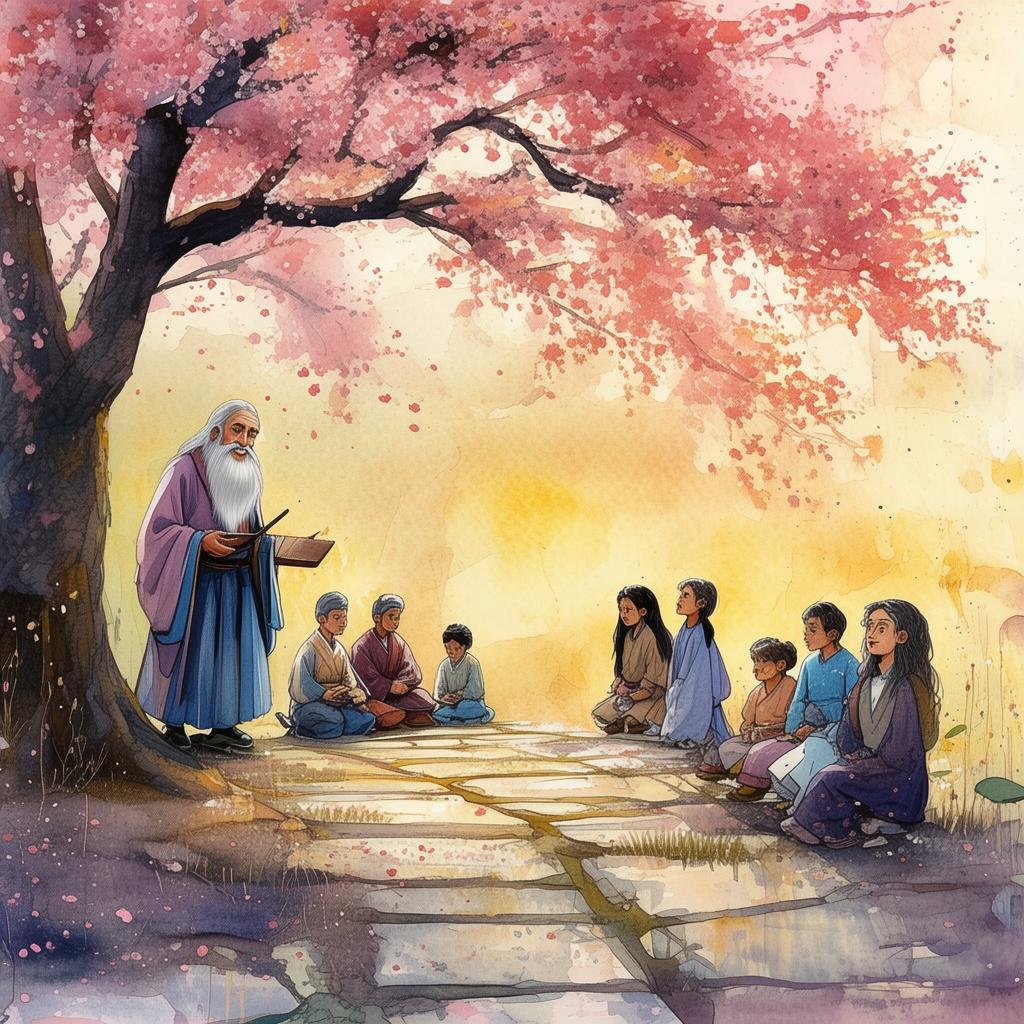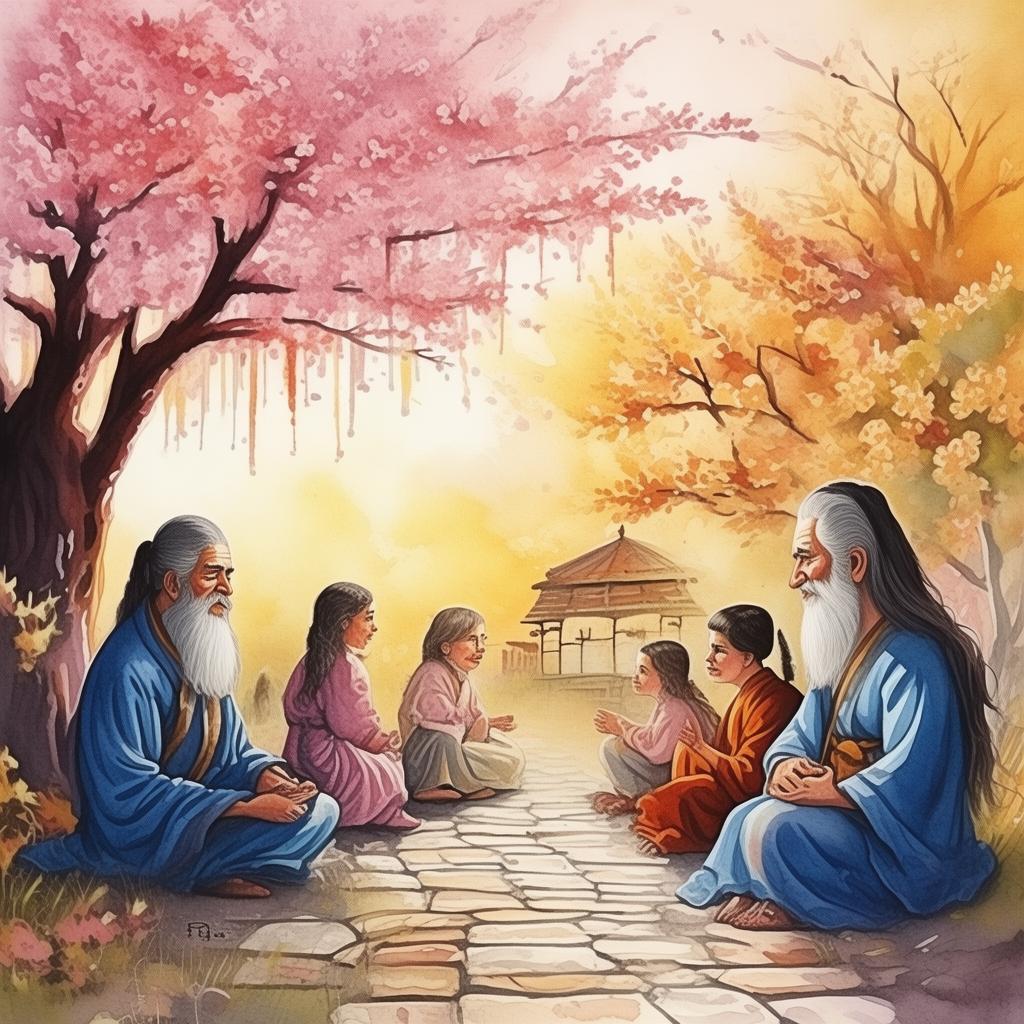The Heart of Virtue: A Tale of the Unwavering Will
In the heart of an ancient kingdom, where the air was thick with the scent of blooming cherry blossoms and the whisper of ancient wisdom, there lived a young man named Zhen. Zhen was not a man of words, but his actions spoke louder than any spoken language. He was known throughout the land for his unwavering will and unyielding spirit, traits that had won him many battles and countless admirers.
It was during the height of the cherry blossom season that Zhen received an invitation to attend the grand opening of a new temple dedicated to the worship of virtue. The temple, known as The Golden Key, was a place where the true essence of virtue was said to be discovered through moral discovery.
As Zhen stood before the temple, he felt a strange mix of excitement and trepidation. The temple was said to hold a key, not just to unlock the gates of paradise, but to reveal the heart of virtue itself. The invitation was a test, a journey that would challenge him to examine the very core of his being.
The journey began with a simple task: Zhen was asked to listen to a series of moral dilemmas presented to him by the temple's guardian. Each dilemma was designed to test his resolve, his integrity, and his will to do what was right.

The first dilemma was a tale of two friends. One friend was rich, the other poor. The rich friend, having lost his fortune, asked his poor friend for a loan. The poor friend had little to offer, but out of loyalty, he lent him all he had. The dilemma was this: should the poor friend have lent his friend the money, knowing he could never repay it?
Zhen pondered the situation, feeling the weight of the decision pressing down on him. He thought of his own friendships, the times when he had been in a similar position. In the end, he decided that the poor friend had acted virtuously, as his act of kindness and loyalty outweighed the potential loss of his own means.
The second dilemma involved a family heirloom, a priceless piece of art. The heirloom had been stolen and the guardian asked Zhen to choose between seeking revenge on the thief or forgiving him and seeking a way to restore the heirloom to its rightful owner. Zhen knew that revenge could only lead to more suffering, so he chose forgiveness, hoping that through his act of mercy, he could set a chain of virtuous actions in motion.
As the journey continued, Zhen faced more and more moral dilemmas. Each time, he had to grapple with the consequences of his choices and the weight of his actions. He found that his initial beliefs about what was virtuous were challenged, and he began to see virtue not as a simple matter of right and wrong, but as a complex tapestry of moral decisions that could shape the world around him.
One of the most difficult dilemmas involved a young girl who was terminally ill. Her family had exhausted all their resources in search of a cure, and they turned to Zhen, hoping he could provide the means to save her. Zhen, though not a physician, felt a deep connection to the girl and her family. Yet, he knew that his intervention could not bring about a miracle. He faced the heart-wrenching decision of whether to offer false hope or to honor the truth, knowing that the girl would have to face the reality of her situation.
Zhen chose to be honest, though it was a decision that would break his heart. He believed that the act of facing the truth was a form of virtue in itself. The girl's family was grateful for his honesty, and in the end, the girl was able to die with dignity, surrounded by love.
As Zhen made his way through the temple, he began to understand that virtue was not just a destination but a journey. It was about the continuous struggle to do what is right, even when it was difficult. It was about finding the courage to stand up for what you believe in, even when the path was uncertain.
The journey came to a climax when Zhen faced the ultimate test: a moral dilemma that would challenge his very essence. He was presented with the opportunity to become the king, but to do so, he would have to betray his own values and the trust of the people he loved. The guardian, seeing the internal battle in Zhen's eyes, revealed the true nature of the test: the test was not about external success, but about internal harmony.
Zhen chose to turn down the offer, realizing that true virtue lay not in external achievements but in the strength of his own character. He returned to his village as a changed man, not because he had gained wealth or power, but because he had discovered the true heart of virtue.
The villagers welcomed him back with open arms, not because he had returned with gold, but because they saw the virtuous man he had become. The temple of The Golden Key was not just a place of worship but a beacon of moral discovery, and Zhen's journey had become a testament to the power of the human spirit and the unwavering will to do what is right.
Through his trials and triumphs, Zhen had discovered that virtue was not a static concept, but a dynamic force that required constant vigilance and reflection. He realized that the key to virtue was not outside of himself, but within, a journey of moral discovery that he would continue to traverse throughout his life.
As the cherry blossoms bloomed once more, Zhen sat under a tree, his thoughts deep and profound. He had faced moral dilemmas that had tested his very core, but he had emerged stronger, with a clearer understanding of what it meant to live virtuously. And as he looked out over the land, he knew that the spirit of virtue would live on in him and in the hearts of those he had touched.
✨ Original Statement ✨
All articles published on this website (including but not limited to text, images, videos, and other content) are original or authorized for reposting and are protected by relevant laws. Without the explicit written permission of this website, no individual or organization may copy, modify, repost, or use the content for commercial purposes.
If you need to quote or cooperate, please contact this site for authorization. We reserve the right to pursue legal responsibility for any unauthorized use.
Hereby declared.









